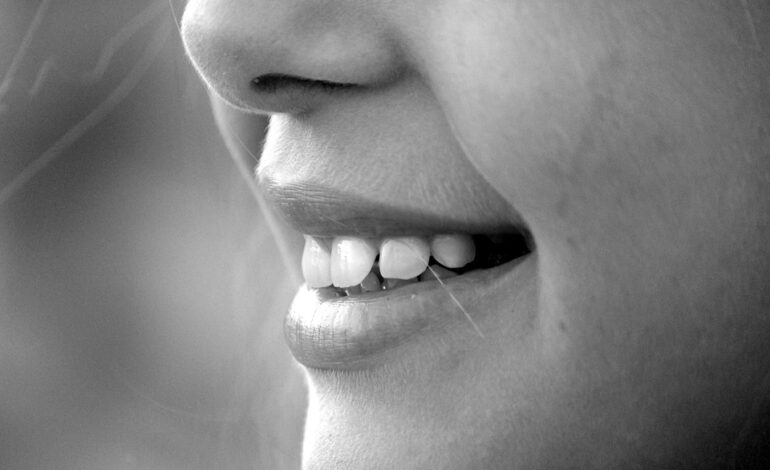How does culture influence critical thinking
Culture plays a significant role in shaping our attitudes, beliefs, and values, which, in turn, can influence our critical thinking.
Cultures can provide us with a framework for understanding the world, which can sometimes be helpful in organizing and making sense of information. However, cultural beliefs and values can also lead to biases and preconceptions that can get in the way of critical thinking. For example, cultural norms and values may influence how we perceive and evaluate evidence, or how we interpret information that conflicts with our existing beliefs.
As an added complication, some cultural norms and customs may work against encouraging critical thinking. Some cultural standards, such as respect for authority or adherence to social expectations, may lead to less critical thinking and less autonomous judgment.
In order to engage in more fruitful critical thinking, it is vital to be cognizant of the ways in which one’s culture might shape one’s perspective and to struggle to overcome any inherent biases or limits. This can be done through challenging our own views and assumptions and being open to new ways of thinking about the world.
Why would resisting change influence critical thinking?
Resisting change can influence critical thinking because it can lead to a closed-minded attitude, in which individuals are unwilling to consider new ideas or perspectives that differ from their established beliefs and values.
When people are resistant to change, they are more likely to stick to their old ways of thinking and feeling, even though those ways of thinking and feeling are incompatible with the facts. Since of this, individuals may have trouble engaging in effective critical thinking because they are not willing to critically examine their own views or entertain the possibility that they could be wrong.
As an added downside, being resistant to change can make you less curious and less interested in expanding your horizons. A person’s capacity for critical thinking and intellectual development can be stunted if they are resistant to change and hence avoid seeking out new experiences and learning chances.
You can’t think critically unless you’re willing to be receptive to fresh information and ideas. A person’s capacity for critical thinking may be compromised if they are resistive to change and so unable to fully engage in this process.
How does religion affect critical thinking?
Religion can have both a positive and negative impact on critical thinking, depending on the individual and the specific religious beliefs and practices involved.
On one hand, religion can provide a framework for understanding the world, a sense of meaning and purpose, and a moral code to guide one’s behavior. These aspects of religion can positively influence critical thinking by helping individuals make sense of complex information and make informed decisions.
Contrarily, some religious tenets and practices can stifle critical thinking by supporting blind faith, encouraging adherence to dogmatic notions, and discouraging questioning and skepticism. A person’s ability to analyze information critically and base decisions on reason and evidence may suffer if they adhere to a religious dogma that is not backed by evidence, for instance.
One’s own set of religious beliefs and practices will determine the extent to which those factors influence one’s ability to think critically. People’s ability to think critically may be helped or hindered by their religious beliefs.
Everyone has to take responsibility for figuring out how their religious convictions shape their worldview and then working to overcome those biases.
How does perception affect critical thinking?
Perception plays a significant role in shaping our thoughts, beliefs, and attitudes, and it can impact critical thinking in a number of ways.
Perception refers to the way that we interpret and make sense of sensory information, and it is influenced by a variety of factors, including our past experiences, biases, and emotions. When our perception is influenced by these factors, it can lead us to form inaccurate or incomplete understandings of the world around us.
If we already have an opinion or bias on a topic, we might only pay attention to data that supports that opinion, while ignoring evidence to the contrary. When we make decisions or create conclusions without considering all of the relevant facts and data, we are exhibiting a form of selective perception that can hinder our critical thinking.
The way we are feeling and the emotions we are experiencing at any one time can also color our perspectives. Anxiety and worry, for instance, can cause us to overestimate the degree to which a given scenario threatens us. The ability to think critically and make well-informed decisions might also be hindered by this kind of emotional perception.
It’s crucial to recognize the influence of one’s own preconceptions and actively attempt to expand one’s horizons. One way to do this is to challenge one’s own preconceptions and biases by learning from the experiences of others and expanding one’s own horizons.
Why is the intellectual influence more significant than others in critical thinking?
The intellectual influence is often considered to be more significant than others in critical thinking because it deals with the development and use of cognitive skills, such as reasoning, analysis, and problem-solving.
Competencies in logical reasoning, seeing and assessing evidence, considering alternative points of view, and coming to conclusions that are well-supported all play a role in shaping a person’s capacity for critical thinking. The ability to think critically and make sound decisions depends on the development of these abilities, which allow people to generate reasonable judgments based on sufficient information.
On the other hand, critical thinking can be stymied by effects of the emotional, cultural, and perceptual variety. Emotions, cultural ideas, and biases in perception can all contribute to skewed worldviews.
The intellectual influence is frequently seen as the most essential in critical thinking since it has a direct bearing on our capacity to digest information, make sense of complicated concepts, and engage in logical reasoning. Strengthening our mental faculties allows us to think more clearly and make wiser choices.
How can autonomy influence motivation to learn and facilitate critical thinking?
Autonomy, or the sense of control over one’s own learning and decision-making, can play a significant role in motivating individuals to learn and facilitating critical thinking.
When individuals feel that they have control over their own learning, they are more likely to be engaged and motivated to learn new information and skills. This sense of control can help to foster intrinsic motivation, or a desire to learn for its own sake, rather than simply for external rewards or to fulfill expectations.
When people have more control over their learning, they are more likely to take an active role in it, which in turn promotes critical thinking. The development of critical thinking skills—including curiosity, questioning, problem-solving, and independent judgment—depends on students having a voice in their educational experiences.
Individuals who have more freedom to try out different strategies for solving problems on their own rather than being told what to do are more likely to be creative and independent thinkers.
In short, autonomy can play an important role in encouraging learning and promoting critical thinking by giving students more agency over their educational experiences. It can aid in the growth of critical thinking and the formation of well-informed decisions by encouraging intrinsic drive, involvement, and autonomy.
How does denial influence someone’s critical thinking process
Denial is a defense mechanism that can negatively influence someone’s critical thinking process. When someone is in denial, they are unwilling or unable to acknowledge or accept a certain reality, even in the face of evidence to the contrary. This can limit their ability to think critically and make informed decisions.
Denial can prevent a person from seeing the entire scope of a problem or from considering all of the information and solutions that exist for dealing with it, such as in the cases of addiction and financial troubles. As a result, people may avoid dealing with the issue at hand, which only makes it worse.
A person who is in denial about a social or political issue may similarly refuse to consider alternative points of view or engage with information that contradicts their own, preferring instead to focus on data that supports their existing worldview. A person’s capacity for critical thinking and informed decision making might be hindered by a pattern of selective information searching.
Overall, denial can be a significant barrier to critical thinking because it prevents people from embracing truth, weighing competing viewpoints, and approaching data and information with an impartial eye.
If we want to improve our capacity for critical thinking, we need to be aware of when we are in a state of denial and take steps to overcome it.
What are some barriers that influence critical thinking
There are several barriers that can negatively impact critical thinking, including:
- Impairing one’s ability to make sound decisions due to emotional biases. When someone has strong feelings about a topic, they may not be open to hearing other points of view or evaluating data objectively.
- We all suffer from confirmation bias, when we look for evidence that supports our preexisting opinions while ignoring or discounting evidence that challenges them. Because of this, we may be less able to think critically and rationally.
- Beliefs, attitudes, and values are not the only things that may be shaped by cultural and societal norms; our very perception and understanding of the world are also susceptible to these forces. Cultural attitudes about race, gender, and sexuality, for instance, might contribute to prejudices and discrimination that undermine our ability to think critically.
- Our perceptions can have a significant impact on our worldview and the beliefs, attitudes, and values that we develop as a result. Consider the ways in which we can be influenced by our own history, feelings, and current state of mind, all of which can shape the way we take in the world around us and the information it contains.
- One’s capacity for critical thought and well-informed decision making can be hampered by a lack of information or understanding on a given topic. To better understand these situations, it is helpful to seek out alternative explanations and points of view.
- The ability to think critically can be hindered by cognitive limits, such as those that limit our capacity for recollection. Limitations in memory or processing speed, for instance, can impede our capacity for creative problem-solving and sound judgment.
Overall, these obstacles can hinder our capacity for critical thinking and informed decision making; as such, it is vital to be cognizant of their effects and to seek to overcome them in order to participate in effective critical thinking.
How can personal bias influence critical thinking?
Because they form our ideas, attitudes, and values and impact how we see and make sense of the world, personal biases can have a major impact on our ability to think critically. The ability to think objectively and make well-informed decisions can be hindered by our own personal prejudices.
Examples of prevalent forms of bias include:
- We all suffer from confirmation bias, when we look for evidence that supports our preexisting opinions while ignoring or discounting evidence that challenges them. Because of this, we may be less able to think critically and rationally.
- Unconscious biases in how we take in and process information are called cognitive biases. The halo effect, for instance, refers to how we tend to generalize a person’s positive qualities from one context (such as their physical attractiveness) to others. The sunk cost fallacy is the mistaken belief that further investment in a situation will result in a different outcome simply because initial investment was made.
- Impairing one’s ability to make sound decisions due to emotional biases. When someone has strong feelings about a topic, they may not be open to hearing other points of view or evaluating data objectively.
- The values and beliefs of our social and cultural groups form our societal and cultural biases, which in turn define our ability to see and make sense of the world. Cultural attitudes about race, gender, and sexuality, for instance, might contribute to prejudices and discrimination that undermine our ability to think critically.
To be successful critical thinkers, we need to be conscious of, and actively seek to overcome, our own inherent prejudices. In order to do this, we may need to actively seek out information and perspectives that force us to question our own assumptions, conduct introspective analyses of our own thought processes, and be receptive to the ideas and viewpoints of others.
Which factors has the greatest positive influence on critical thinking?
Some things that can help improve one’s critical thinking skills are:
- Being sensitive to and open to new ideas and viewpoints is a virtue that can play a significant role in encouraging critical thought. People can increase their knowledge of the world and their capacity for critical thought by being open to and considering alternative points of view.
- The ability to think critically is a skill that may be honed via study and experience. An individual’s analytical and evaluative skills, as well as their openness to new ideas and cultural norms, can benefit greatly from a formal education.
- Participation: Participating actively in one’s career, hobbies, or other interests helps foster analytical thinking. Individuals can increase their knowledge of the world and their ability to solve problems by actively seeking out new information and experiences.
- Diversity: Exposure to different ways of thinking and cultures might help foster better critical analysis. An individual’s worldview and critical thinking skills can benefit by interaction with people from a variety of cultural and linguistic backgrounds.
- Critical thinking can also be fostered through the practice of reflection and introspection. Individuals can improve their capacity for critical thinking by learning more about their own thought processes and identifying the biases and restrictions that have an impact on those processes through introspection on their experiences, beliefs, and values.
- Having access to credible sources of knowledge can also improve one’s ability to think critically. Individuals can make better decisions and solve problems more efficiently if they actively seek out and consider accurate, relevant information.
Overall, there are numerous aspects that might influence one’s ability to think critically, and the sum of these influences can be rather important. For critical thinking to have its greatest possible influence, it is necessary to foster a setting that encourages and facilitates it.
How can goal oriented disposition influence motivation to learn and facilitate critical thinking?
- Focuses attention: A goal-oriented approach to learning helps to focus attention and energy on the task at hand, which can improve the quality and effectiveness of critical thinking.
- Provides motivation: Having a clear goal in mind can provide motivation to learn and engage with new information, which can help to facilitate critical thinking.
- Encourages self-reflection: When individuals have a goal-oriented approach to learning, they may be more likely to reflect on their progress and evaluate their own thinking processes, which can help to identify areas for improvement and facilitate critical thinking.
- Improves problem-solving skills: A goal-oriented approach to learning can encourage individuals to think creatively and critically, as they seek to find the most effective solutions to problems and reach their learning goals.
- Increases engagement: When individuals are motivated to learn and engage with new information, they may be more likely to actively seek out new experiences and perspectives, which can broaden their understanding of the world and facilitate critical thinking.
Having a positive, ambitious attitude may do wonders for your drive to study and your ability to think critically. Individuals can strengthen their capacity for critical thinking and increase their knowledge of the world by establishing and working towards specific learning goals.
How does ego defense influence someone’s critical thinking process?
Ego defense mechanisms can have a significant impact on an individual’s critical thinking process, as they can interfere with the individual’s ability to think objectively and rationally.
Ego defense mechanisms are unconscious psychological strategies that people use to protect their self-esteem and avoid emotional pain. Some common examples of ego defense mechanisms include denial, repression, projection, and rationalization.
When people use ego defense strategies, they may exaggerate positive experiences and downplay negative ones. To avoid facing their own guilt, someone may make excuses for their behavior instead of accepting responsibility.
Ego defense mechanisms hinder one’s capacity for critical and objective thinking since they cause one to misinterpret reality and avoid uncomfortable realities. They can make it hard for people to see where their own thinking is flawed and open up to new ideas and approaches.
The unpleasant emotions, like as fear and anger, that can result from ego defense systems also impede critical thinking by making it harder for people to concentrate and think effectively.
Overall, ego defense mechanisms can have a major effect on critical thinking by disrupting one’s capacity for detached, reasonable analysis. It is necessary to recognize and fight to overcome these ego protection mechanisms in order to strengthen critical thinking skills.
How might the influence of a group affect critical thinking?
One’s ability to think critically can be significantly affected, for better or worse, by the social dynamics in which they find themselves immersed. As a group, you can do things like:
- Groupthink: In some cases, being part of a group can lead to a phenomenon known as “groupthink,” in which individuals conform to the opinions and perspectives of the group, even if those opinions are not well-supported or rational. This can limit an individual’s critical thinking skills, as they may be less likely to challenge the group’s opinions or consider alternative perspectives.
- Social Comparison: Individuals often look to others in their group for cues on how to behave and what to believe. This can lead to a tendency to conform to the opinions and perspectives of the group, and to prioritize social approval over independent thinking.
- Peer Pressure: Groups can also exert peer pressure on individuals to conform to certain behaviors or beliefs. This pressure can interfere with critical thinking by making it difficult for individuals to express their own opinions and consider alternative perspectives.
- Diversity of Perspectives: On the other hand, being part of a group that is diverse in terms of backgrounds, experiences, and perspectives can encourage critical thinking by exposing individuals to a range of ideas and perspectives that they may not have considered otherwise.
- Collaborative Learning: When a group works together to solve a problem or learn a new concept, they can challenge each other’s thinking, offer new perspectives, and engage in critical thinking together.
How do personal values influence critical thinking? How does sight influence critical thinking?
- Personal Values: Personal values can play a significant role in shaping an individual’s critical thinking process. Values such as honesty, fairness, and equality can encourage individuals to think objectively and consider multiple perspectives. On the other hand, values that are not aligned with critical thinking principles, such as tribalism or dogmatism, can limit an individual’s ability to think critically and objectively.
- Sight: Sight, or visual perception, can influence critical thinking in several ways. For example:
- People place a great deal of weight on visual clues when formulating judgments and choosing courses of action, and this can have an effect on their beliefs and attitudes.
- The same caution is warranted when processing visual data, as one must exercise critical thinking skills in order to avoid being duped.
- In order to better comprehend and analyze data, visual representations such as graphs and diagrams can be quite useful.
How do moral integrity and critical thinking influence your values?
Moral integrity and critical thinking are closely related to values as they both play a role in shaping an individual’s beliefs and behavior.
Moral integrity refers to a person’s adherence to a set of ethical principles and values. It can influence an individual’s values by providing a framework for making ethical decisions and determining what is right or wrong.
Contrarily, “critical thinking” is the act of logically and methodically assessing a given piece of data or argument. The ability to think critically can aid in recognizing prejudice, determining the reliability of sources, and arriving at well-considered conclusions.
Integrity in morals and analytical thinking go hand in hand in assisting people in living in accordance with their ideals and values. A person who places a high value on honesty, for instance, can benefit from the ability to exercise critical thinking in order to determine whether or not a piece of information is reliable and, thus, refrain from acting on it. Just as moral integrity can help a person who cares about equity make fair and just choices, so too can fairness itself help shape an individual’s behavior.
Individuals who possess high levels of moral rectitude and critical thinking are more likely to make decisions that are consistent with their values and the values of those they care about.
How can memories help influence critical thinking?
There are many ways in which one’s memories might affect one’s ability to think critically:
- Past Memories and Events: A person’s outlook and set of core beliefs are heavily influenced by their life experiences. A person’s predisposition to be skeptical or critical of anything may be influenced by their past experiences with that thing or notion.
- Influence of Emotion: Recalling a past experience can arouse a wide range of feelings, some of which might cloud judgment and cause people to act based on their gut rather than their head. It’s possible, for instance, that someone with a deep personal investment in a topic would reject data that runs counter to their views.
- The propensity to seek out and interpret information that supports one’s existing ideas while ignoring information that contradicts them is called confirmation bias, and it can be influenced by one’s memories. One’s capacity for critical thought can suffer if they aren’t exposed to different points of view.
- The building of mental frames, or “schemas,” through which new information can be organized, comprehended, and made meaning of, is another function of memory. By offering a framework for collecting, sorting, and analyzing data, this can help promote critical thinking.
How can things like upbringing, culture, motivation and attitude influence critical thinking?
- Upbringing: An individual’s upbringing can have a significant impact on their critical thinking skills. For example, a childhood environment that emphasizes independent thinking and encourages questioning authority can foster critical thinking skills. On the other hand, an upbringing that emphasizes obedience and discourages questioning can limit critical thinking ability.
- Culture: Culture can also play a role in shaping critical thinking skills. Some cultures may place a high value on independent thought and encourage individuals to question assumptions and beliefs, while others may emphasize conformity and discourage questioning. Cultural values, norms, and beliefs can also shape an individual’s perspectives and biases, which can impact their critical thinking ability.
- Motivation: Motivation is a key factor in facilitating critical thinking. Individuals who are motivated to learn and understand new information are more likely to engage in critical thinking and be open to considering alternative perspectives. On the other hand, individuals who lack motivation may be less likely to critically evaluate information and may rely on preconceived notions and biases.
- Attitude: Attitude can also influence critical thinking ability. Individuals who have a positive, open-minded attitude towards learning and considering new information are more likely to engage in critical thinking. On the other hand, individuals who have a closed-minded attitude may be less likely to consider alternative perspectives and may rely on preconceived notions and biases.
In conclusion, a person’s critical thinking skills can be influenced by factors such as upbringing, culture, motivation, and attitude. Individuals can improve their critical thinking and make better, more well-informed decisions by being aware of these effects and attempting to overcome whatever limits they may provide.
Groupthink vs critical thinking
| Groupthink | Critical Thinking |
|---|---|
| Group cohesion and unanimity are prioritized above all else. | A willingness to consider multiple perspectives and engage in open-minded, rational debate is valued. |
| Group members conform to the opinions and decisions of the group, suppressing dissenting opinions. | Diverse perspectives and dissenting opinions are encouraged and evaluated. |
| Group members avoid confronting any flaws in their own arguments or those of the group. | Individuals are willing to critically evaluate their own arguments and those of others. |
| Rationalization and justification of group decisions is emphasized over objective evaluation. | Objective evaluation and decision making is emphasized over justification and rationalization. |
| The group tends to make irrational or poorly-informed decisions due to pressure to conform. | Decisions are made based on a thorough evaluation of available information and alternatives. |
How does critical thinking affect perception?
Critical thinking has a significant impact on perception as it affects how people interpret and make sense of information. Simply put, perception is how we make sense of the world around us based on the data we receive from our senses. The problem is that this procedure might be skewed by a person’s preconceived notions, feelings, and experiences, resulting in erroneous conclusions.
By helping people to critically analyze and challenge their own views and assumptions, critical thinking helps to prevent these biases and inaccuracies. To better grasp a situation and generate reliable opinions about it, people might use critical thinking.
Someone who is thinking critically about a political topic, for instance, won’t just accept the views of the media outlet or political party they tend to agree with, but will instead look at the issue from a variety of angles. This allows them to gain a broader perspective on the topic, which may result in a more nuanced and accurate assessment of it.
To sum up, critical thinking is essential for perception since it aids in the development of more balanced and informed worldviews.
How does one’s paradigm affect one’s critical thinking?
A person’s paradigm, or worldview, can greatly influence their critical thinking abilities. A paradigm is a set of beliefs, values, and assumptions that shape a person’s perception of reality. It provides a framework for interpreting information and experiences, and can greatly impact how a person thinks about and understands the world.
A person’s capacity for critical thinking might be stunted if their paradigm is too fixed and unyielding, preventing them from taking into account alternative points of view. A person with a strong ideological bias, for instance, would only look for evidence that confirms their preexisting opinions and might ignore or dismiss anything that runs counter to them. This can cause one to experience confirmation bias and see things in an inflated light.
On the other hand, adopting a more adaptable and non-dogmatic paradigm might help one develop better critical thinking skills by exposing them to new ideas and viewpoints. A person with a flexible and evidence-based worldview, for instance, could be more likely to look into many viewpoints and gather information from a wide range of sources before making a decision. A more complete and accurate worldview can develop as a result.
In conclusion, a person’s paradigm can have significant effects on their capacity for critical thought. The capacity for critical thought can be stunted by a closed-minded and inflexible paradigm, while it can be strengthened by an open and accommodating one.
How does critical thinking affect people’s daily life?
Critical thinking has a significant impact on people’s daily lives as it helps individuals make better decisions, solve problems more effectively, and engage in more meaningful and productive communication.
Some of the ways in which critical thinking can improve one’s daily life are as follows:
- Improved deliberation comes from the ability to critically assess information, consider alternatives, and act accordingly. With the help of critical thinking, individuals can forego emotional or biased decision-making in favor of more well-informed choices.
- Critical thinkers are better equipped to see challenges and apply methodical, in-depth analysis to find workable solutions. Individuals are better able to come up with solutions to difficult challenges and assess their effectiveness by first reducing those problems to manageable chunks.
- Effective communication is another area in which critical thinking proves useful. Conversations are enhanced when participants are able to assess and comprehend information, which allows for more concise and clear expression of ideas and opinions.
- Self-improvement: Critical thinking promotes self-awareness by revealing hidden assumptions and prejudices. People develop personally and intellectually when they challenge their own preconceptions and open their minds to new points of view.
How does technology and internet affect critical thinking?
Technology and the internet have both positive and negative effects on critical thinking. On one hand, technology and the internet provide access to a vast amount of information and resources, making it easier for people to engage in critical thinking and learn about new ideas and perspectives.
However, it’s also possible to suffer from information overload due to the web’s wealth of data. Additionally, the internet is a platform for the spread of misinformation and propaganda, which can undermine critical thinking by presenting false or misleading information as fact.
Technology and the internet can influence critical thinking in the following ways:
- The internet has made it much simpler to gain exposure to new ideas and information from a variety of sources, and to develop one’s own critical thinking skills.
- The sheer volume of data available online, however, can cause information overload and make it hard for users to determine which sources can be trusted.
- When erroneous or misleading material is presented as fact, it can impair critical thinking and spread like wildfire over the internet.
- Distraction: Technology and the internet can be a source of distraction, diverting one’s attention from critical work and making it more difficult to concentrate and think critically.
- Less face-to-face time: Technology and the internet have led to less face-to-face time, which might reduce opportunities for critical thinking by restricting exposure to other ideas and experiences.
How do stereotypes affect critical thinking?
There are many ways in which stereotypes hinder analytical thinking.
- Confirmation bias: Stereotypes can lead to a confirmation bias, where individuals only seek out information that supports their preconceived beliefs and ignore information that contradicts their stereotypes.
- Biased judgments: Stereotyping can also lead to biased judgments and decision-making. For example, if someone holds a stereotype about a particular group of people, they may unconsciously allow that stereotype to influence their assessment of individuals from that group. This can result in unfair and inaccurate judgments that are not based on evidence or reason.
- Reduced empathy: When people rely on stereotypes, they may reduce their capacity for empathy and understanding. By relying on oversimplified and often negative generalizations, they miss the opportunity to understand the unique experiences and perspectives of others.
- Limited perspective: Stereotyping can also limit a person’s perspective and understanding of the world. By relying on generalizations and assumptions, individuals may overlook important nuances and complexities in people and situations, leading to a limited and one-dimensional view of reality.
As a result of confirmation bias, skewed judgments, less empathy, and a narrow perspective, stereotypes can negatively affect critical thinking. Enhancing the ability to think critically requires a willingness to question and confront preconceived notions and a dedication to investigating issues from a variety of angles.
Does critical thinking affect completeness?
Yes, critical thinking can affect completeness. Critical thinking involves a systematic and thorough examination of information and arguments, which can help individuals to identify important gaps or missing information. By questioning assumptions and considering multiple perspectives, critical thinking can lead to a more complete and well-rounded understanding of a topic or issue.
Example: determining all the aspects that need to be taken into account when solving a complex problem requires an individual to use their critical thinking skills. Without critical thinking, however, it is easy to miss vital information or leave out relevant aspects, leading to a solution that is both incomplete and inaccurate.
Does ethnocentrism affect critical thinking?
Yes, ethnocentrism can have a negative impact on critical thinking. Ethnocentrism is the tendency to view the world from the perspective of one’s own cultural group and to judge other cultures based on the values and norms of that group.
This way of thinking can stifle critical analysis because it encourages people to dismiss the validity of different cultures and points of view. It can also cause one to have a closed mind and refuse to see things from other people’s points of view.
Moreover, ethnocentrism can rise to prejudices and preconceptions, which in turn can distort critical thinking by clouding judgment and causing people to jump to unjust and erroneous conclusions. For instance, if a person has a preconceived notion about a certain ethnic group, they can judge all members of that group by that standard rather than considering them individually.
In conclusion, ethnocentrism can hinder one’s ability to think critically because it fosters a myopic and unbending worldview, encourages the perpetuation of preconceived notions and prejudices, and prevents the cultivation of openness to alternative points of view. As a means of developing one’s capacity for critical thinking, it is essential to examine and confront one’s own ethnocentric worldview and to seek out alternative points of view and information from people of different cultural backgrounds.
Does critical thinking affect synthesis?
Yes, critical thinking can positively affect synthesis. Synthesis is the process of combining different elements or ideas to form a new and integrated whole.
Critical thinking encourages individuals to consider multiple perspectives, identify patterns and relationships, and evaluate information and arguments in a systematic and thorough manner. By doing so, critical thinking can help individuals to develop a more comprehensive and integrated understanding of a topic or issue.
In the evaluation of a complicated problem, for instance, critical thinking can aid in the identification of all of the relevant variables that must be examined and the synthesis of these factors into a cohesive and integrated solution. Compared to relying exclusively on intuition or assumptions, this approach can lead to a more original and effective solution.
Does critical thinking affect data, information, and wisdom?
Data, information, and knowledge can all be influenced through critical thinking.
- Data: Critical thinking can help individuals to effectively evaluate and interpret data by encouraging them to consider the source, quality, and relevance of the data. This can result in a more accurate and meaningful interpretation of the data and can help individuals to avoid making false or misleading conclusions.
- Information: Critical thinking can also help individuals to effectively evaluate and use information by encouraging them to consider the credibility, reliability, and validity of the information. This can result in a more informed and accurate understanding of a topic or issue and can help individuals to avoid making decisions based on false or misleading information.
- Wisdom: Critical thinking can contribute to the development of wisdom by encouraging individuals to consider multiple perspectives, evaluate information and arguments in a systematic and thorough manner, and reflect on their experiences and knowledge. This can result in a more mature and informed understanding of the world and can help individuals to make better decisions and solve complex problems more effectively.
How poor ethic affect critical thinking?
Poor ethics can have a negative impact on critical thinking. Ethics are the principles and values that guide behavior and decision-making. Poor ethics can lead to behavior that is deceptive, manipulative, or otherwise unethical, which can undermine critical thinking by clouding judgment and distorting information.
When people act unethically, for instance by making up or falsifying data, it might lead to erroneous findings. This, in turn, can harm critical thinking since it encourages people to base their judgments on unreliable sources.
If someone is unethical, others may stop believing them and the information they provide. A lack of credibility might make it hard for others to depend on the source or evaluate the information provided by the source critically.
In conclusion, unethical behavior can impair one’s ability to think critically by exposing one to false data, eroding one’s credibility and trustworthiness, and coloring one’s perception of reality. Behaving in an honest, transparent, and fair manner is crucial to developing one’s critical thinking skills.
Can depression and mental instability affect your critical thinking skills?
Yes, depression and mental instability can have an impact on critical thinking skills. Mental health and well-being can play a significant role in cognitive functioning and the ability to engage in critical thinking.
Depression and mental instability can result in symptoms such as difficulty concentrating, decreased motivation, and negative thought patterns. These symptoms can make it difficult for individuals to engage in critical thinking by interfering with their ability to focus, evaluate information, and consider multiple perspectives.
A skewed perception of reality, brought on by things like depression or mental instability, can also have a negative impact on one’s ability to think critically by distorting the facts one is presented with. A depressed person, for instance, may find it hard to see the bright side of things and instead concentrate on the negatives.
In conclusion, conditions such as depression and mental instability can have a negative effect on an individual’s capacity for critical thinking by disrupting their ability to focus, assess evidence, and generate alternative explanations. Improving one’s ability to think critically requires maintaining a healthy mental state and reaching out for help when it’s needed.
How does critical thinking affect your operational definition?
Critical thinking can positively affect one’s operational definition. An operational definition is a precise, specific, and concrete definition of a term or concept that clearly defines what it is and how it can be measured or observed.
By encouraging individuals to take into account alternative points of view, evaluate the strength of the available evidence, and spot any inconsistencies or gaps in the data, critical thinking can aid in the creation of a more specific and accurate operational definition. Because of this, it is possible to arrive at an operational definition that is both more thorough and precise, and which is grounded on the most reliable evidence, for precisely defining what is being measured or seen.
When defining a phrase or concept, for instance, critical thinking can aid in taking into account all the important variables that need to be included and synthesizing these factors into a cohesive and integrated description. This can lead to a more exact, accurate, and useful definition than if the person had relied exclusively on intuition or preconceptions.
How can critical thinking help decision making in a clinical setting?
By assisting in the evaluation and interpretation of information, the identification of the optimal course of action, and the formulation of informed decisions about patient care, critical thinking plays an essential role in clinical decision making.
- Evaluation of Information: Critical thinking encourages healthcare providers to evaluate the quality, relevance, and accuracy of information when making clinical decisions. This helps them to avoid relying on false or misleading information and to make decisions based on the best available evidence.
- Identification of Multiple Perspectives: Critical thinking also encourages healthcare providers to consider multiple perspectives when making clinical decisions. This helps them to identify and consider alternative viewpoints, potential biases, and potential confounding factors that could impact the decision-making process.
- Evidence-Based Practice: Critical thinking supports evidence-based practice, which is the use of the best available evidence to guide clinical decision making. By encouraging healthcare providers to evaluate and use the best available evidence, critical thinking helps them to make informed and effective decisions that are based on the most current and accurate information.
- Reflective Practice: Critical thinking also supports reflective practice, which is the process of examining one’s own actions and thought processes to identify areas for improvement and to enhance decision-making skills. By encouraging healthcare providers to reflect on their own decision-making processes, critical thinking can help them to identify areas for improvement and to make better decisions in the future.
What counselors do when they have biases that affect critical thinking?
In order to give their clients the best care possible, counselors who are affected by prejudices in their critical thinking should work to overcome those biases. As a counselor, you can combat your own biases by doing things like:
- Becoming self-aware about one’s own biases is the first step in combating those biases. By regularly assessing oneself and participating in self-reflection, counselors can improve their practice and better serve their clients.
- Counselors can overcome their own prejudices by learning about and discussing alternative viewpoints, methods, and approaches during their own and their clients’ educational and professional development. This can aid them in increasing their expertise and finding better ways to serve their clientele.
- Counselors can also benefit from regular supervision from a trusted mentor or supervisor in order to better understand and resolve their own biases. To help counselors identify and overcome their own personal prejudices, a supervisor can offer them direction, support, and constructive criticism.
- Counselors can learn to recognize and overcome their own prejudices by participating in cultural competency training that exposes them to the ideas and experiences of people from different backgrounds. This can aid them in better comprehending their patients’ conditions and enhancing their care.
- Finally, counselors should actively seek out varied viewpoints through multidisciplinary collaboration, working with a wide range of client populations, and fostering relationships with coworkers from a variety of cultural and ethnic backgrounds.
Ultimately, in order to offer the best treatment possible to their clients, counselors should take action when they recognize that they are biased.
Counselors can improve their critical thinking abilities and care for their clients if they become conscious of their own prejudices, seek out education and supervision, participate in cultural competency training, and actively seek out other perspectives.









